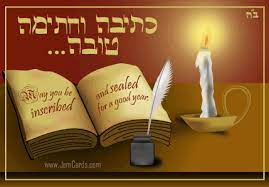Eikev 2022 – Rewards and Punishments: What’s the Real Story?
by devadmin | August 18, 2022 9:07 pm
Raboyseyee and Ladies,
A few mazel tov shoutouts, here we go.
We begin with a mazel tov shout out to another niece, Esther Miller, who will be hosting -this coming Shabbis with the Ois in attendance- an aufruf for her future son-in-law, Sruly Brach, he from Miami Beach, FL. Sruly will be marrying great niece Racheli Miller on September 30th, im’h. The Ois and eishes chayil will of course be in attendance and look forward to sharing in this great simcha. Mazel tov to Esty and the entire mishpocho.
And a big mazel tov to Marlin and Jaime Sohacheski- friends of many decades- upon the upcoming bar mitzvah this Shabbis -here in town- of their grandson Yoni Brafman, son of Jasmine and Dovid Brafman, and grandson of Lynda and Ben Brafman. Mazel tov to the entire extended Sohacheski and Brafman families.
A big mazel tov shout out to our friends -and fellow Monroe Street congregants- Limor and David Decter, who became first time grandparents earlier this week when their daughter Lara gave birth to a baby girl. Mazel tov to the new parents Lara and Joe Safdeye and welcome to the world Eliana (Celine) Safdeye. You will surely be a source of much joy and nacahs to your entire family.
One more mazel tov shoutout to Rummy Azman, the Ois’s great nephew who lained flawlessly and spoke masterfully -as did his father Moshe, grandfather Dr. Tommy Azman, family friend Rabbi Ari Storch, and the heylige Ois himself- at Rummy’s bar mitzvah this past Shabbis in Baltimore. Mazel tov again to my niece and nephew, Avigayil and Moishe Azman and to the entire extended Azman family. The simcha was givaldig!
————————————————————————————————————-
Rewards and Punishments: What’s the Real Story?
 Shoin, another Shabbis Nachamu in the books. Moshiach hasn’t yet arrived, and we begin counting down to another season of Yomim Toivim (High and regular Holidays) to include Rosh Hashono, Yom Kippur and Sukkis. Organizations are sending out fund-raiser calendars -why, ver veyst- and shuls are sending out seating requests subtly reminding all to pay their outstanding invoices. T’is the season, and guess what? This past Shabbis, over in Baltimore, in attendance at the bar mitzvah of a great nephew, one gentleman -who happens to be making a bar mitzvah for his own son in a few weeks- took the opportunity to wish the heylige Ois a “ksiva va’chasima toiva meaning that I should be inscribed for a good year ahead and that such fate be sealed. Well blow me down: was this blessing a shtikel premature in mid-August? Don’t we typically wish this to and upon our friends -and to kimat anyone else we meet and greet- just before Rosh Hashono and until Yom Kippur? When is the right time? Nu, as it turns out, the well-wisher knew more than the Ois and here’s how it goes. Typically, we begin to wish each other a “Kesiva Vachasima Tovah” starting from Rosh Chodesh Elul. In reality, most begin the week before Rosh Hashono. That being said, some are accustomed to begin doing so from the 15th of Av. Who are these “some” who bestow such wishes so far in advance? The list includes the Shaar Yisacher, the Darchi Chaim Vesholom and the Lubabitcher Rebbe who says it is a minhag yisroel (custom of the Jewish people) to do so. But wait: there’s more: it so happens that the gematria (numerical value of the Hebrew letters which spell out “Chamisho Asar Beav” (the 15th day of Av) is the same as “Kesiva Vechasima Toiva”. Case closed! The bottom line: seemingly it wasn’t too early at all and thank you Dr. Eli Azman for your good wishes. And mazel tov on your upcoming simcha.
Shoin, another Shabbis Nachamu in the books. Moshiach hasn’t yet arrived, and we begin counting down to another season of Yomim Toivim (High and regular Holidays) to include Rosh Hashono, Yom Kippur and Sukkis. Organizations are sending out fund-raiser calendars -why, ver veyst- and shuls are sending out seating requests subtly reminding all to pay their outstanding invoices. T’is the season, and guess what? This past Shabbis, over in Baltimore, in attendance at the bar mitzvah of a great nephew, one gentleman -who happens to be making a bar mitzvah for his own son in a few weeks- took the opportunity to wish the heylige Ois a “ksiva va’chasima toiva meaning that I should be inscribed for a good year ahead and that such fate be sealed. Well blow me down: was this blessing a shtikel premature in mid-August? Don’t we typically wish this to and upon our friends -and to kimat anyone else we meet and greet- just before Rosh Hashono and until Yom Kippur? When is the right time? Nu, as it turns out, the well-wisher knew more than the Ois and here’s how it goes. Typically, we begin to wish each other a “Kesiva Vachasima Tovah” starting from Rosh Chodesh Elul. In reality, most begin the week before Rosh Hashono. That being said, some are accustomed to begin doing so from the 15th of Av. Who are these “some” who bestow such wishes so far in advance? The list includes the Shaar Yisacher, the Darchi Chaim Vesholom and the Lubabitcher Rebbe who says it is a minhag yisroel (custom of the Jewish people) to do so. But wait: there’s more: it so happens that the gematria (numerical value of the Hebrew letters which spell out “Chamisho Asar Beav” (the 15th day of Av) is the same as “Kesiva Vechasima Toiva”. Case closed! The bottom line: seemingly it wasn’t too early at all and thank you Dr. Eli Azman for your good wishes. And mazel tov on your upcoming simcha.

Welcome to Parshas Eikev where Moishe continues his oration and is reviewing -again- the history of the Yiddin for the past 40 years. He loves reminding them of their many foibles and tells the Yiddin that if they are faithful to the covenant, they will be blessed materially as well as spiritually. But they should not attribute their success to themselves or their righteousness. In other words: they Yiddin weren’t all that deserving but were selected anyway; they were the best of the worst. He also reminds them of specific sins committed during the wilderness years. These include the eygel caper (golden calf), the Koirach rebellion, and other such episodes. In this area of constantly drudging through the past, Moishe reminds most men of their wives who seem never to forget any transgression, no matter how many years or decades have passed. Shoin, let’s not blame them; it’s just how the RBSO designed them. Who knew what could become of one rib? He reminds them too of the RBSO’s forgiveness. Remembering their history, they are to love and revere the RBSO and teach their children to do likewise. That’s the parsha roundup and now let’s discuss what’s on the Ois’s mind this week.
 What’s on my mind is the very first posik mamish where Moishe -on behalf of the RBSO- again offers the carrot and stick to the Yiddin and reminds them over and again that the RBSO has established and already implemented the first ever rewards program for good behavior. Follow the RBSO’s commandments -do a mitzvah- and get rewarded. As well, He has set up a system of harsh punishments for the sinners. What’s in store for sinners? The first 49 curses and admonitions were previously disclosed to the Yiddin back in Parshas Bichukoisai; an expanded version of all that’s coming, will be revealed in a few weeks when we get to Parshas Ki Sovoy. The good news: the rewards are specifically delineated. They include these: the RBSO will (1) “love you”, (2) “bless you” with material wealth, (3) “multiply you” with many offspring, (4) “bless the fruit of your womb” since you will suffer neither from miscarriages nor from losing children during your lifetime, (5) bless your “grain, wine and oil”, (6) bless “the offspring of your cattle and sheep” with health, (7) guarantee that “you will be blessed by the nations”, (8) assure that there will be “no barren male or female among you”, (9) “remove all common illnesses from you”, and (10) miraculously, “devour all of the nations” for you (Devorim Raba). The bad news: the punishments, oy vey, too have been updated and include much suffering along with various forms of torture and death.
What’s on my mind is the very first posik mamish where Moishe -on behalf of the RBSO- again offers the carrot and stick to the Yiddin and reminds them over and again that the RBSO has established and already implemented the first ever rewards program for good behavior. Follow the RBSO’s commandments -do a mitzvah- and get rewarded. As well, He has set up a system of harsh punishments for the sinners. What’s in store for sinners? The first 49 curses and admonitions were previously disclosed to the Yiddin back in Parshas Bichukoisai; an expanded version of all that’s coming, will be revealed in a few weeks when we get to Parshas Ki Sovoy. The good news: the rewards are specifically delineated. They include these: the RBSO will (1) “love you”, (2) “bless you” with material wealth, (3) “multiply you” with many offspring, (4) “bless the fruit of your womb” since you will suffer neither from miscarriages nor from losing children during your lifetime, (5) bless your “grain, wine and oil”, (6) bless “the offspring of your cattle and sheep” with health, (7) guarantee that “you will be blessed by the nations”, (8) assure that there will be “no barren male or female among you”, (9) “remove all common illnesses from you”, and (10) miraculously, “devour all of the nations” for you (Devorim Raba). The bad news: the punishments, oy vey, too have been updated and include much suffering along with various forms of torture and death.
 In plain English: One of the central principles we were taught -over and again- is that Judaism operates on the concept of sechar-v’oinesh, (reward and punishment). Such teachings began early on with the lollipop and the stick the rebbe uses kimat everyday on someone’s behind and elsewhere. They continue ad hayoim hazeh (until today). Volumes have been written by many trying to understand just how the system works; much of what’s written conflicts with other teachings on the very same subject and a good headache you will surely get trying to chap and decipher the true mechanisms of the reward/punishment scheme. The bottom line: Man is culpable for his deeds and misdeeds, women too. Conduct -good and bad- leave an indelible imprint both in this world and the next. How all that works, ver veyst, as not one person the Ois knows has been to the next world and reported back. An eyewitness would certainly add credibility and clarity. The bottom line: this hot topic is discussed by many an exegete davka because there are many conflicting statements in the heylige Mishneh, Gemora and elsewhere. The heylige Toirah states specifically that there are rewards and punishments. Two entire parshas are dedicated to them. Elsewhere in the heylige Mishneh and Gemora, we are taught punkt farkert (opposite). Which is it? Ver veyst? The bottom line of what we were taught is this: man will be richly rewarded for his good actions and severely punished for his misdemeanors. Women too! Ober what’s not clear is where all these rewards and punishments get meted out. Do rewards come in this world? Do mitzvah observant people become wealthy and stay healthy? Not always, ober that, and why bad things happen to very good people, for another day. Or, must we wait until the world to come to enjoy the benefits? Another bottom line: this concept is hinted to or found in many parshas, this week’s but one such example.
In plain English: One of the central principles we were taught -over and again- is that Judaism operates on the concept of sechar-v’oinesh, (reward and punishment). Such teachings began early on with the lollipop and the stick the rebbe uses kimat everyday on someone’s behind and elsewhere. They continue ad hayoim hazeh (until today). Volumes have been written by many trying to understand just how the system works; much of what’s written conflicts with other teachings on the very same subject and a good headache you will surely get trying to chap and decipher the true mechanisms of the reward/punishment scheme. The bottom line: Man is culpable for his deeds and misdeeds, women too. Conduct -good and bad- leave an indelible imprint both in this world and the next. How all that works, ver veyst, as not one person the Ois knows has been to the next world and reported back. An eyewitness would certainly add credibility and clarity. The bottom line: this hot topic is discussed by many an exegete davka because there are many conflicting statements in the heylige Mishneh, Gemora and elsewhere. The heylige Toirah states specifically that there are rewards and punishments. Two entire parshas are dedicated to them. Elsewhere in the heylige Mishneh and Gemora, we are taught punkt farkert (opposite). Which is it? Ver veyst? The bottom line of what we were taught is this: man will be richly rewarded for his good actions and severely punished for his misdemeanors. Women too! Ober what’s not clear is where all these rewards and punishments get meted out. Do rewards come in this world? Do mitzvah observant people become wealthy and stay healthy? Not always, ober that, and why bad things happen to very good people, for another day. Or, must we wait until the world to come to enjoy the benefits? Another bottom line: this concept is hinted to or found in many parshas, this week’s but one such example.
Let’s read the very first Posik where Moishe has this to say:
| 12. And it will be, because you will heed these ordinances and keep them and perform, that the Lord, your G-d, will keep for you the covenant and the kindness that He swore to your forefathers. | יבוְהָיָ֣ה | עֵ֣קֶב תִּשְׁמְע֗וּן אֵ֤ת הַמִּשְׁפָּטִים֙ הָאֵ֔לֶּה וּשְׁמַרְתֶּ֥ם וַֽעֲשִׂיתֶ֖ם אֹתָ֑ם וְשָׁמַר֩ יְהֹוָ֨ה אֱלֹהֶ֜יךָ לְךָ֗ אֶת־הַבְּרִית֙ וְאֶת־הַחֶ֔סֶד אֲשֶׁ֥ר נִשְׁבַּ֖ע לַֽאֲבֹתֶֽיךָ: |
Shoin, with but the first two words of the parsha and guess what? All hell is about to break loose. Already, there are five or more opinions on what Moishe meant to convey. Efsher you’re wondering azoy: what taka did Moishe mean by invoking the word “eikev?” Does this word ‘eikev’ appear anyplace else in the entire heylige Toirah? It does not! At least not in that form. As an aside, we do find a similar word way back in Bereishis when the heylige Toirah describes the birth of Yaakov and Eisav, but do both words mean the same thing? There the word -ba-a-kev means heel, in our parsha it means what? One thing is zicher (certain): whatever the word does mean- and yes, it means different things to different exegetes- the next question is this: this posik tells us that we will be rewarded for mitzvah performance and specifically if we follow the “mishpotim” (logical laws). That’s nice but…. is Moishe suggesting that we are only rewarded for observing mishpotim? Why doesn’t he mention rewards for the observance of the chukim? What are those? Cukim -for those who no longer recall -mistama that’s most of you- are decrees that are hard to understand; no reason given for their observance. The RBSO said “just do them” and shoin. And the question is azoy: if we’re being rewarded for doing the logical commandants, shouldn’t we be earning double and or triple rewards for observing those commandments which may or may not make sense, yet we observe them anyway? For those we follow just because the RBSO so commanded? Doesn’t logic dictate that we receive a greater reward for performing chukim than for fulfilling mishpotim? And wouldn’t more of us follow rules were we instantly rewarded? Isn’t that why we use our AMEX cards and why we buy Apple products -we don’t need- davka because they give us 4x rewards on specific dates? It is! And how much more so, were double and triple rewards to be handed out for mitzvah compliance? What’s pshat here and why is Moishe silent on this matter?

Let’s summarize the questions: what does the word ‘eikev’ mean and why doesn’t Moishe mention chukim when promising rewards for mitzvah observance? Let’s throw one more question into the mix: the very last posik of last week’s parsha says this:
| 11. You shall therefore, observe the commandments, the statutes, and the ordinances, which I command you this day to do. | יאוְשָֽׁמַרְתָּ֨ אֶת־הַמִּצְוָ֜ה וְאֶת־הַֽחֻקִּ֣ים וְאֶת־הַמִּשְׁפָּטִ֗ים אֲשֶׁ֨ר אָֽנֹכִ֧י מְצַוְּךָ֛ הַיּ֖וֹם לַֽעֲשׂתָֽם: |
Notice how Moishe closes out last week’s parsha by reminding the Yiddin to follow the commandments, the statutes and the ordinances; chukim are specifically included. Ober this week, the chukim are left out; what’s pshat? Did he change his mind?
Shoin let us begin by first understanding how a few of our well-known sages interpreted this word eikev. Says the Chizkuni, azoy: “eikev” means “bishvil” (because), and thus the posik reads, “because you will listen to these laws, you will receive Hashem’s blessing.” As mentioned, our sages struggled with this word ‘eikev’ and check out Rashi who says azoy: Eikev means that you will be rewarded for doing “light” mitzvos that are seemingly unworthy of great reward and that people “tread on with their heels.” In other words, the word ‘eikev means heel. Like Rashi, RambaN understands “ekev” to refer to “akev—a heel”, but explains the heel to refer to the end, just as the beginning is called head (rosh). RambaN understands the message and the word to tell us that the end result of your observance will be the RBSO’s reward of blessing. Let’s try some more. Says Targum Unkelis (the Aramaic translation of the Toirah) that the word eikev, the name of our parsha, means “reward.” Thus the first words of the parsha should be understood as follows: “This shall be the reward when you obey these ordinances, and you observe and perform them.” Wait: there’s more and says the Ibn Ezra the word Eikev means in “the end” for doing the mitzvos. Or, eikev could also mean when you are as humble as a heel that follows the rest of the foot. Bottom line: they all say basically but not the same thing. Clear? Not? Let’s try some others.

Let’s also check out the heylige Ohr Hachaim who says that the first word of the parsha – V’hoyo, (and it will be) is an expression of joy (as we see in Bereishis Raba 42:3), and offers three interpretations based on this. The first is that true joy is achieved only at the end of observing the mitzvis. Second, the joy of Toirah study, which gladdens the heart is itself the reward (as in “ekev rav” – great reward). And lastly, the Ohr Hachaim explains that when Am Yisrael tries its best to learn and understand the Toirah, the RBSO rejoices and, as a result, the whole world is happy. He concludes by teaching us that Toirah can only be mastered by walking humbly, as one whose akeiv—heel is near his toe, i.e. who walks with small steps which represents humility. What that all means, ver veyst?
Says the Kli Yokor azoy: it’s emes: the word and concept of observing chukim mentioned in the last posik of last week’s parsha of Vo’eschanan is taka missing from the opening verse in Eikev. What’s pshat? He explains azoy: it’s not really missing. It’s not? Where is it? Chukim are in reality found in the word ‘eikev’ which he interprets to be the heel. Which further means and can be understood to mean that one should not trample and step on the chukim, those statutes for which we do not know the reasons. This is in contrast to the mishpotim, the laws that mankind would enact on their own as it makes sense for a society. Chukim, as explained, do not have rational reasons to the human mind. Moreover, the term eikev does include all the statutes. The statutes are hinted in the word eikev because the Soton (Satan) and the nations of the world mock the Jewish People for doing these mitzvis that they cannot relate to. It is for this very reason that Jews tend to trample and step on chukim, mitzvis which they feel uncomfortable doing because they do not know the reasons to do them. This is what our rabbis referred to when they said “do not tread upon the mitzvis kalos” – seemingly the easy ones but those that people mock. Got that? Not exactly? Let’s try chapping by example: when reading the ingredients panel of a medication, do you understand or know what they all are? Yet, you follow because that’s what the doctor directed. So too when it comes to following directions in the Shulchan Aruch (code of Jewish Law); one should just do the mitzva instead of mocking and disregarding it completely. There is a guarantee that if a person does these mitzvis he will come to rejoice, as reflected in the word V’hoyo (and it will be). Veyter. The bottom line: most of this is over my head!
Ober, the Ois’s favorite pshat comes from the Ba’al Ha’turim he, a master in gematria, and goes like this: Eikev means for observing the Aseres haDibros (The Ten commandments), which contains 172 words. Observe them and you will be rewarded. Why? Because the gematria of the word “eikev” is 172. Gishmak! Ober, when the Ois went to check the math, he found azoy: it’s taka emes that one will find 172 words in the first set of the Ten Commandments, the one’s we read back in Parshas Yisroy, the ver one’s Moishe broke, ober it’s not so when reading the second set, the one’s we heard just last week in Parshas Vo’eschanan. The second set contains an extra 17 words. What’s pshat? Not to worry because the gematria still works for the first set. Ober, what to do about the extra 17 words in the second set of Ten Commandments? Says Rav Tzadok Hakohein of Lublin so gishmak, azoy: the second version of the Aseres Hadibros, which we lained last week, taka contains 17 more words than the first. And 17 is the value of the word tov, which means good. The bottom line: it’s good to observe the Ten Commandments and compliance comes with rewards. Gishmak!

That all being said, we also know that kimat whenever mishpotim are mentioned they are always mentioned in conjunction with chukim. Why taka does our parsha leave them out? Ver Veyst? Why taka does Moishe offer rewards for those who observe logical mitzvis? Says the Sho’el U’meishiv so gishmak azoy: it’s taka emes that it’s easier to perform mitzvis we understand, ober, it’s still hard to do them lishmo (mamish for the sake of the RBSO), and not just because they are logical and make sense. Perhaps Moishe was talking about the predominance of mitzvis lishmo -specifically for the purpose of serving the RBSO, and for such observance, he promised that that rewards would be great. The bottom line: whether lishmo or not, and whether we perform mitzvis we understand or not, the heylige Toirah seems to be sending a message: do them and be rewarded.
Shoin, after reading all the questions and answers, the Ois was klerring azoy: why is this even a question? Let’s recall that when Moishe delivered the last sentence of last week’s parsha and the first posik of this week’s parsha, he was in the midst of one long oration. In fact, he was in the middle of one perek (chapter), hence last week’s parsha ends with posik 11 and this week’s begins with posik 12 of the very same chapter. In the 13th century some goy came along, made chapters in the heylige Toirah, and got everyone confused about what Moishe was saying or not. Why the Yiddin accepted, the goy’s work, ver veyst? And if that’s not confusing enough, let’s also recall that the parshas as we know them today is not how the RBSO dictated the heylige Toirah to Moishe. What we know and accept is this: The division of the parshas into the 53 weekly Toirah portions that we know of today, is not recorded in the heylige Gemora and is possibly not of Biblical status. Shoin, I said that! Historically, it is unclear as to when this division took place and as to who authored it. Says who? Check out the Mishneh Kesef who writes azoy : “We will never really know who was the first person to separate the Parshiyos and make the Toirah into five parts, but most likely this was done by Moishe himself.” The bottom line: some form of division had to be made in order to organize the parshas of the scheduled reading. Thus, it is not historically unfounded to suggest the possibility that this division was already followed by the Yiddin since Matan Toirah, and was established by Moishe. Such is the understanding of some. Ober, other decisors are adamant that parsha distribution was established by Ezra. Says the Bach 685 azoy: “However, Moishe did not establish the order of what should be read on Shabbos until Ezra came along.”
The bottom line: regarding the start and end of each of the 53 parshas as we know of today, we do not have a clearly written tradition. Says Rav Yissachar of Susan (Ibur Shanim) azoy: “Even in the Diaspora there are places which follow variant customs in the start and end points of the Parshiyos. Some divide Parshas Ki Sisa to two, while others end Parshas Vaeira in middle of the Parsha and begin the next week from the middle of Vaeira. Other communities divide Parshas Mikeitz to two Parshiyos.” Rav Saadya Gaon in his Siddur attempts to make some organization of the Parshiyos, as to their start and end point, and in his words “Regarding the remaining Parshiyos I want to make an order.” Nonetheless, it seems evident from the above sources, that the general Parshiyos which we know of today, were for the most part followed likewise in the Geonic times of Rav Saadya, and it is only in certain areas that the order was different.
The bottom line: Rewards associated with the performance of mishpotim and chukim were all part of one longer paragraph. And because the goy came along and created parshas, and because whomever created parshas chose to cut Moishe in mittin-derinin (midway through his thoughts) on observance and rewards, many an exegete took literary license to question, and proffer answers on how mishpotim and chukim are similar and not. And the final bottom line: it’s entirely plausible that pisukim 11 of last week and 12 of this week’s go together and that there are rewards for both chukim and mishpotim. The Ois’s theory is quite logical and no more questions please.
As to rewards in general, a few more bottom lines. It does epes appear that we Yiddin act righteously only to gain something back in return, namely rewards. But isn’t reward and punishment a childish idea? Are we back to lollipops? Does scripture speak of reward and punishment davka (specifically) as a way to stimulate proper compliance? Es ken taka zeyn (could be) and based on the Mishneh (Avos 1:3), it certainly does so appear. The Mishneh is not a fan and says azoy: “Be not like the servant who serves a master on the condition of receiving a gift; but be like the servant who serves a master not on the condition of receiving an award.” The Mishneh is admonishing those who perform the mitzvah davka to earn a reward. As mentioned over and again, when it comes to sechar and oinesh (reward and punishment), we’ve only scratched the surface as many big guns weighed in with very long and extensive exegesis. Those, including the RambaM who himself says a few seemingly contradictory things on the concept. and his views for another day. On the other hand, the Mishneh Avos d’Rabbi Noson says this: “Is it conceivable that a laborer works all day and does not take his pay home in the evening?” In other words: we did the mitzvah; we want rewards. Or at least a mitzvah note!
A gittin Shabbis-
The Heylige Oisvorfer Ruv
Yitz Grossman
Source URL: https://oisvorfer.com/eikev-2022-rewards-and-punishments-whats-the-real-story/